Bernadette Walker murder: The brother desperate for answers
- Published
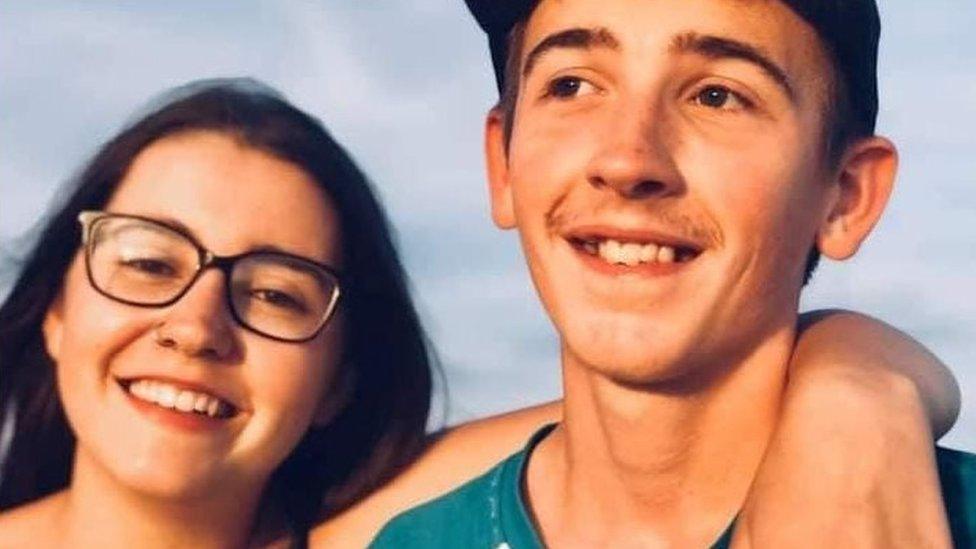
Anthony Walker, 20, says his sister Bernadette was a "bubbly and fun person"
Scott Walker's phone was off for 91 minutes on the day the teenage girl who called him dad went missing. He has now been found guilty of a murder thought to have taken place in that time. But the body of his victim has never been found. What happened to Bernadette Walker?
Like many other 17-year-olds, Bernadette Walker was studying and dreaming of future plans.
Somewhat shy around new people, Bernadette was a "bubbly and fun person", according to her older brother Anthony.
Once she got to know a person, he says, she would be "open with them; she'll show them her true side".
Bernadette was studying photography at a local college in Peterborough.
"She was really good at art," says Anthony, 20. "I think she did want to pursue a career in art at some point, but she was also talking a lot about going to America."
Anthony had similar aspirations for a stateside adventure and planned to "try to save some money and surprise [Bernadette] by taking her with me".
That chance was snatched away by Scott Walker, their mother's ex-partner, who acted as father figure in the siblings' lives.
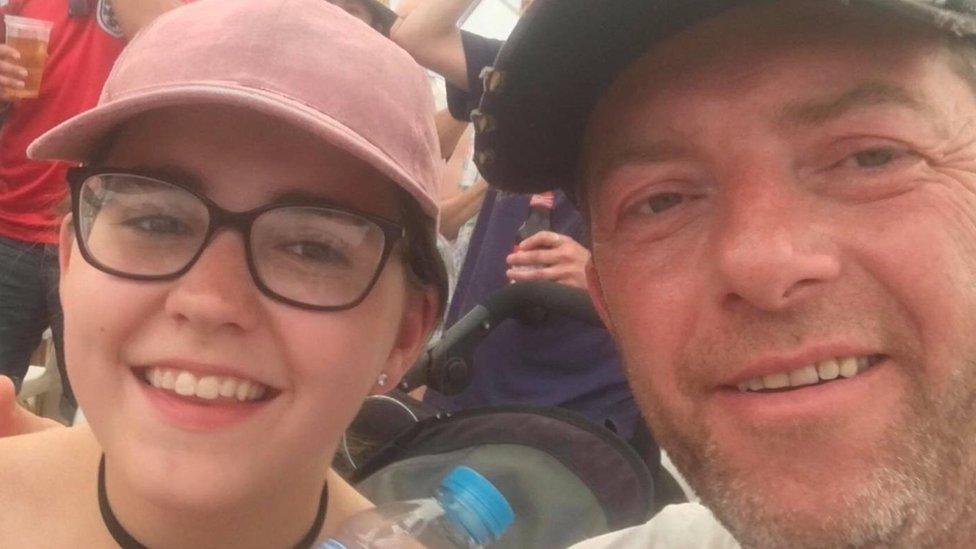
Bernadette claimed Scott Walker had sexually abused her for years just two days before she was last seen
Although Bernadette's mother Sarah Walker was not married to Walker, she had taken his surname. So had Bernadette.
And when the relationship between Sarah Walker and Walker ended, they continued to live together in the family home.
Walker set up cameras in the family bathroom.
He claims they were installed because he suspected Bernadette of hiding sweet wrappers in a toilet roll.
He denies they were for watching Bernadette undress.
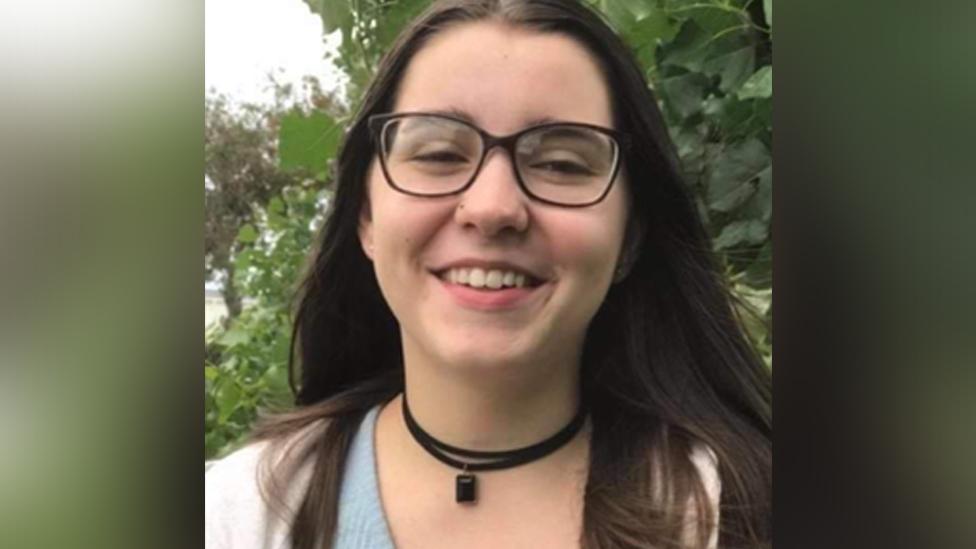
Bernadette was last seen on the morning of 18 July
But in July last year, Bernadette went to her mother with allegations Walker had been sexually abusing her for years.
She later told police Bernadette said Walker was "doing stuff to me, and there was a camera in the bathroom or something".
Sarah Walker stated she "just didn't believe that he could do that".
The day after the allegations were made, Bernadette spent the night with Walker's parents while things calmed down.
Walker picked Bernadette up from his parents' home on the morning of 18 July.
It was the last time she was seen alive.
Walker's mobile phone was switched off between 11:23 BST and 12:54 that day.
When he turned his phone back on, the first call he made was to Sarah Walker.
Prosecutors claim it was during this nine-minute call that Walker told her he had killed Bernadette and needed help to cover up her death.
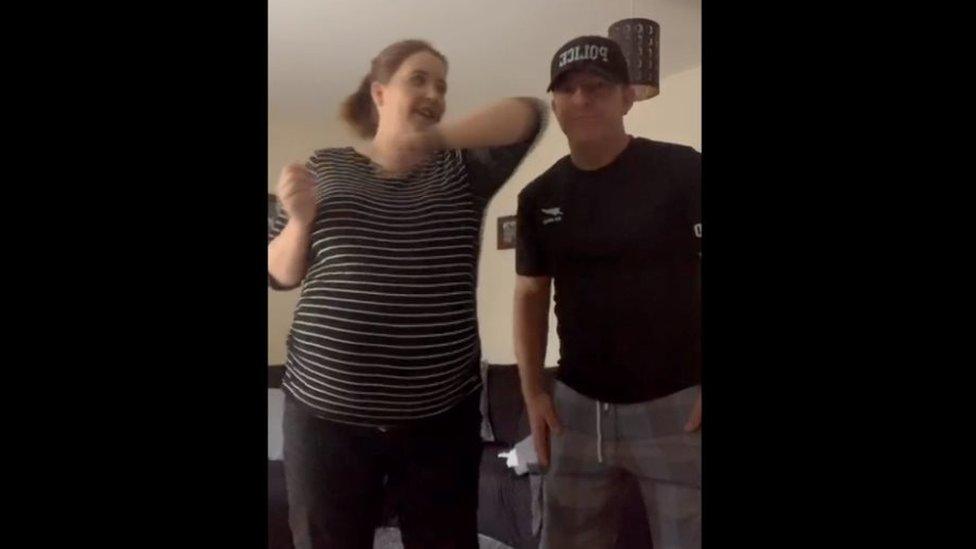
Jurors were shown a TikTok video of Sarah and Scott Walker
Sarah Walker would later admit sending some messages from Bernadette's phone and providing false information to the police in what prosecutors termed an "unholy alliance".
"All parental love and responsibility was gone, if ever it actually existed," prosecutor Lisa Wilding QC told jurors.
Three days passed before Sarah Walker reported her daughter missing.
On 7 September, Walker posted an appeal on Facebook, which read: "Please share. Bernadette Walker the police came for your hairbrush and toothbrush tonight.
"You can imagine how much we are both worried. We need to know that you are safe. Plz [sic] let someone know. Your grandparents are extremely worried too. We love you."
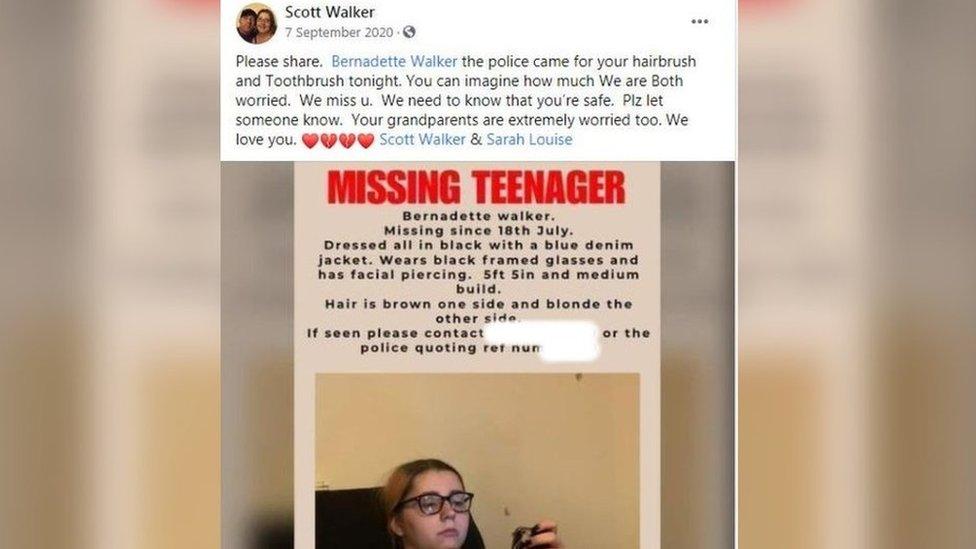
Scott Walker posted an appeal on Facebook a week before he was charged with Bernadette's murder
But police suspicions about Walker's involvement were quickly growing.
He had claimed Bernadette ran off from the car when he stopped to roll a cigarette.
"Scott went to great pains to not give us an exact location of where she got out of the car," says Det Insp Justine Jenkins, from the Bedfordshire, Cambridgeshire and Hertfordshire Major Crime Unit.
"Her rucksack was in the garage... the social media accounts were changed and messages were sent to friends and family purporting to be from Bernadette."
On 14 September, with evidence mounting, Bernadette's mother and the man she called dad were both charged with perverting the course of justice. Scott Walker was charged with murder.
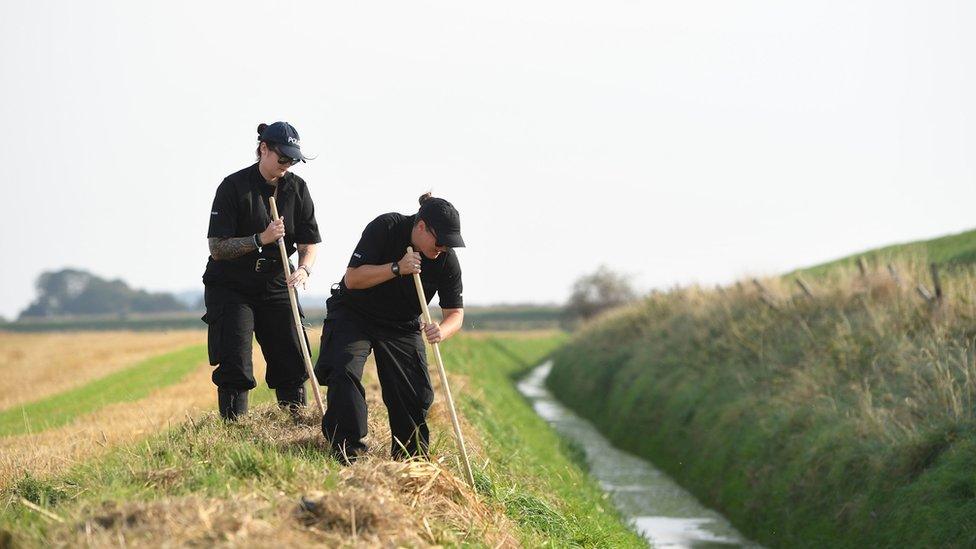
Fields near Cowbit in Lincolnshire were among those searched by police looking for Bernadette
To this day, Bernadette's body had still not been found, despite extensive searches in garages and fenland fields.
Det Insp Jenkins says that analysis of Walker's phone data led police to an "unusual journey" to Cowbit in Lincolnshire shortly after Bernadette's last sighting.
Sadly, "nothing at all" was found, she says.

When no body is found
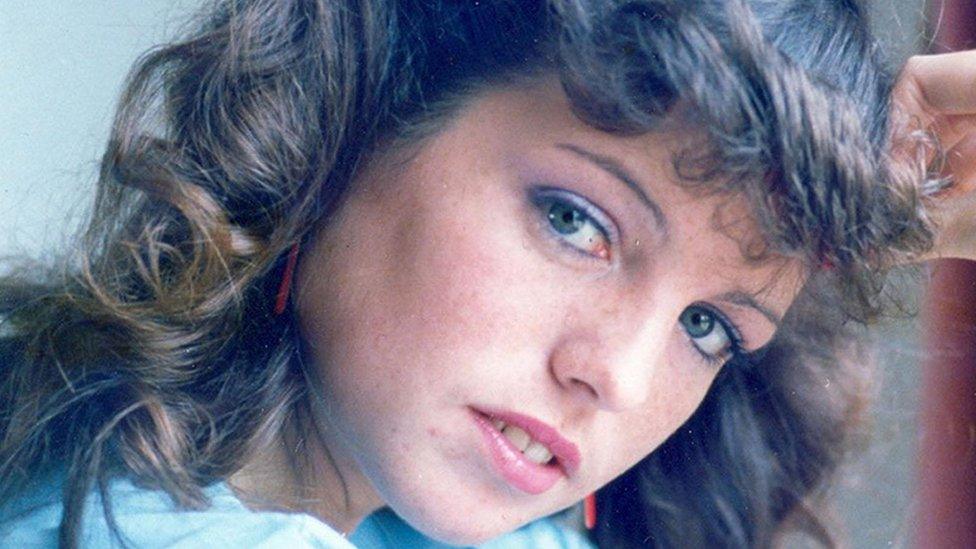
The murder of Helen McCourt has led to the introduction of Helen's Law, aimed at denying parole to killers who refuse to disclose a body's location
About two murder trials happen annually across the courts of England and Wales in which the victim's body has not been found.
At one time, such cases were never brought to court. Following a 17th Century case in which the supposed victim reappeared after three people were hanged for his murder, suspects could not be tried in the absence of a body.
But through the 20th Century more cases arose, including in 1954 when a Polish ex-serviceman was convicted of murdering his business partner in a case in which police were convinced he had chopped his victim's body up and fed it to pigs.
In more recent years, high-profile cases include Helen McCourt in 1988, whose killer was freed from jail without disclosing the location of her remains, the abduction and murder of five-year-old April Jones in 2012, and the killing of midwifery student Joy Morgan in 2019 - a case Det Insp Jenkins also worked on.

"The police and the prosecution never want to bring a case to court without a body because it's extremely difficult to secure a conviction because a body holds so much evidence," says Dr Samantha Lundrigan, director of Anglia Ruskin University's policing institute for the eastern region.
"It's proof that a crime has been committed and the body itself can tell you so much in terms of forensics and understanding behaviour and just what happened."
Dr Lundrigan says that the digital traces we all leave help in police investigations, such as Walker's phone evidence.
"Twenty years ago, it would have been actually impossible, probably, to bring this case to court," she says.
"But because of the digital footprint that was left by mobile phone, it can tie an individual to particular locations and, if that person can't give an account for that behaviour, that is going to add up.
"And of course he [Walker] was the last person to see her alive, which is not insignificant."
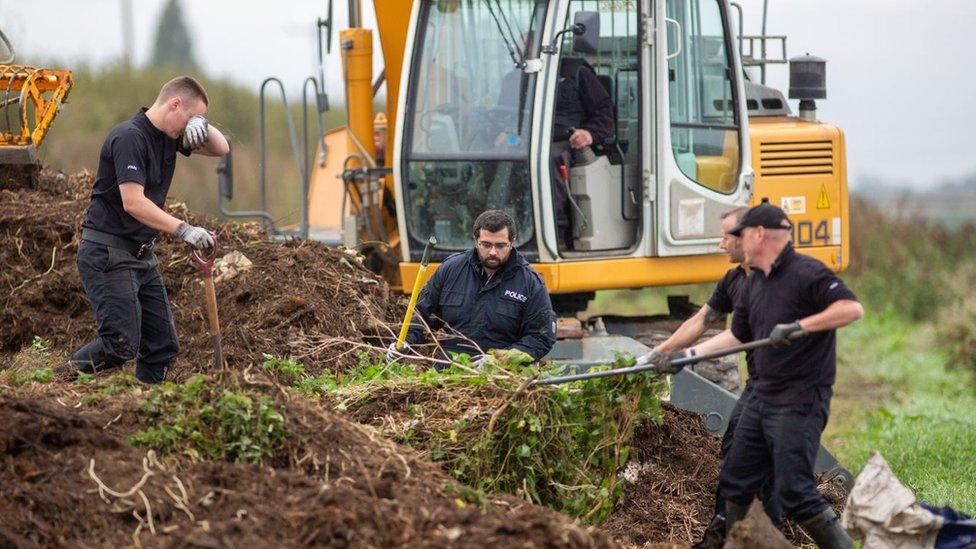
Bernadette Walker's body is yet to be found, despite police searches
She says investigators trying to find the remains of victims need to think of where suspects choose to offend and take bodies as "rational processes".
"Those decisions are guided by two things: familiarity and suitability," she says.
"Offenders, we see time and time again, will operate in areas that they are familiar with because they know what to expect where.
"They'll be using their mental map, their area of awareness. We all have them. We operate between school, home, work, shops... and they become very familiar environments.
"We find that offenders will scan the environment and use those environmental cues to think about suitable places.
"You need somewhere that's accessible because bodies are heavy and you need somewhere accessible, typically by car. But somewhere that also affords the privacy needed so you don't have any witnesses and somebody can get away with it."
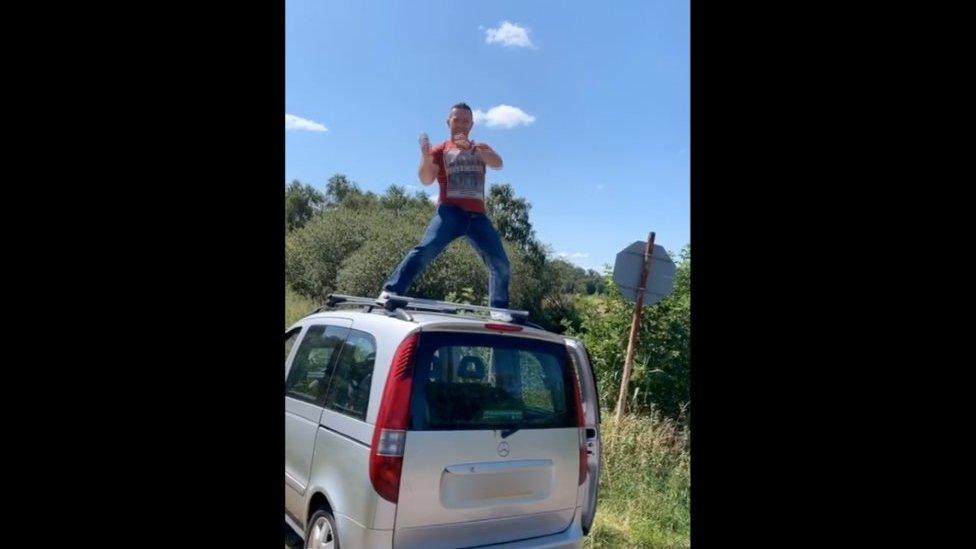
Scott Walker on top of his Mercedes van in another TikTok video - the same van that journeyed to Cowbit after Bernadette disappeared
In the case of Bernadette, Dr Lundrigan says we "almost get a timeline of behaviour" in the initial hours after she vanished - the time she was "most likely killed".
"In my experience, murders like this happen quite spontaneously. If we think it was daylight when he picked her up, if it did happen spontaneously, then I think there would have been a moment where, because he's in a vehicle, that affords him some privacy.
"He doesn't necessarily need to think about disposing her body immediately.
"In fact, we know he had lock-ups very close to where she was staying... and we know he returned to [them] many times over the coming couple of days.
"It could be that lock-up served as an interim disposal site and then her body was moved again when the conditions were right, i.e. darkness... and he had a chance to think about it and think about where he was going to dispose of her."
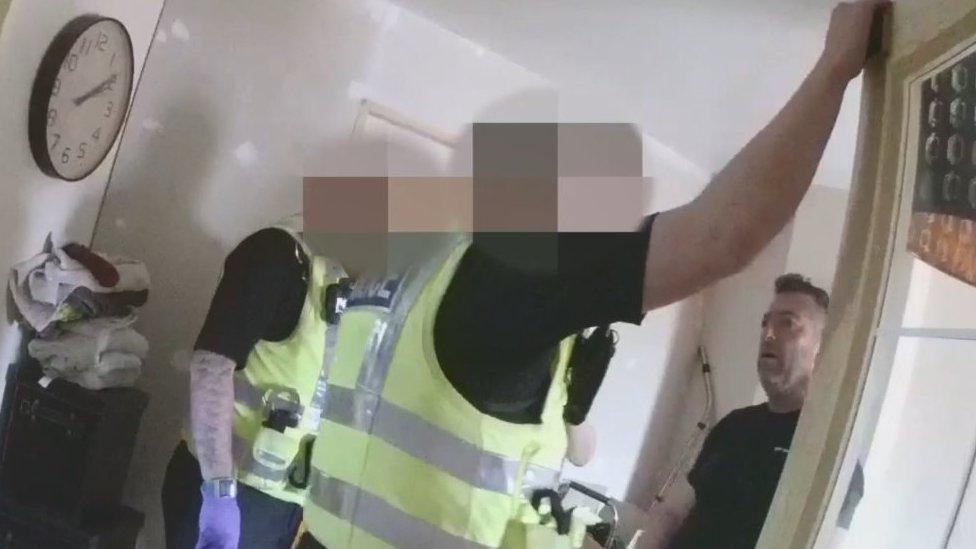
Scott Walker was arrested at home following Bernadette's disappearance
Now convicted of murder, police plan to speak to him in prison in a bid to get information about where Bernadette is.
However, Dr Lundrigan said: "What we find with killers is often it's the last bit of control they have, so they are very reluctant to relinquish.
"Even when they are found guilty and they're in prison and there is no attention on them, they've still got that one nugget of information, and it's power."
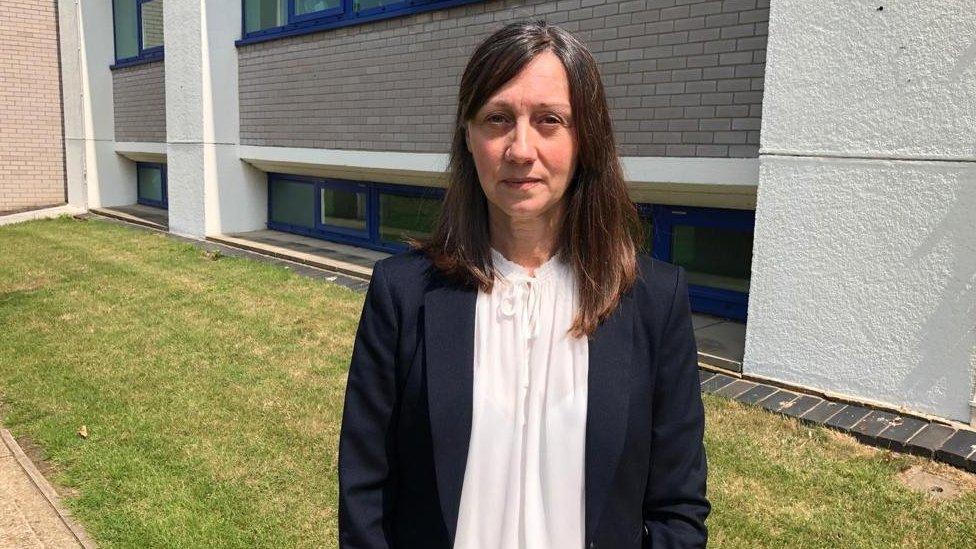
Det Insp Justine Jenkins suspects Bernadette was strangled or smothered
Det Insp Jenkins suspects that, due to the lack of forensic evidence, Bernadette may have been strangled or smothered to death, but adds "it's impossible to know until we actually find Bernadette".
She says the force's investigation "will never stop whilst Bernadette is still out there somewhere".
"The more you look through someone's life the more you feel like you do know them," she says.
"None of us [detectives] have ever met her but have seen her on videos and TikToks and her social media accounts.
"And speaking to friends as well, you just get the impression she was a lovely girl, loved her photography and had everything to live for."
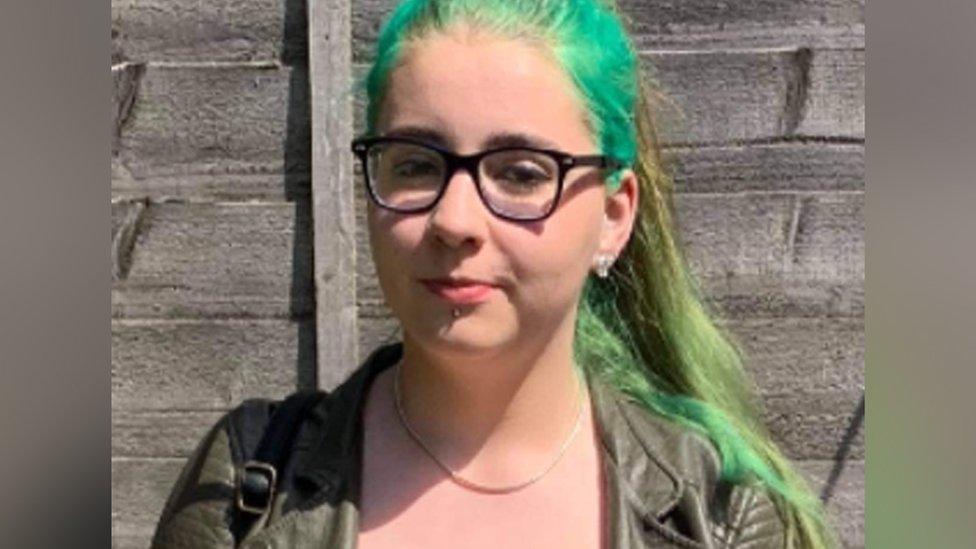
Bernadette Walker's brother says he remains committed to finding his sister
For Anthony, he says that for the past year "it's just like there's an empty part in our lives which is not there".
Anthony says he had acknowledged that his sister might be dead, but "at the moment the bigger part of me is trying to say that she's alive and must be alive because there's no body and there's no murder weapon, there's no proof to actually prove she's dead".
"I won't stop until I know the actual answer," he says. "I will still keep searching because she's out there somewhere. She doesn't deserve to just be lying in some ditch or something."

Find BBC News: East of England on Facebook, external, Instagram, external and Twitter, external. If you have a story suggestion email eastofenglandnews@bbc.co.uk, external
Related topics
- Published14 July 2021

- Published7 July 2021
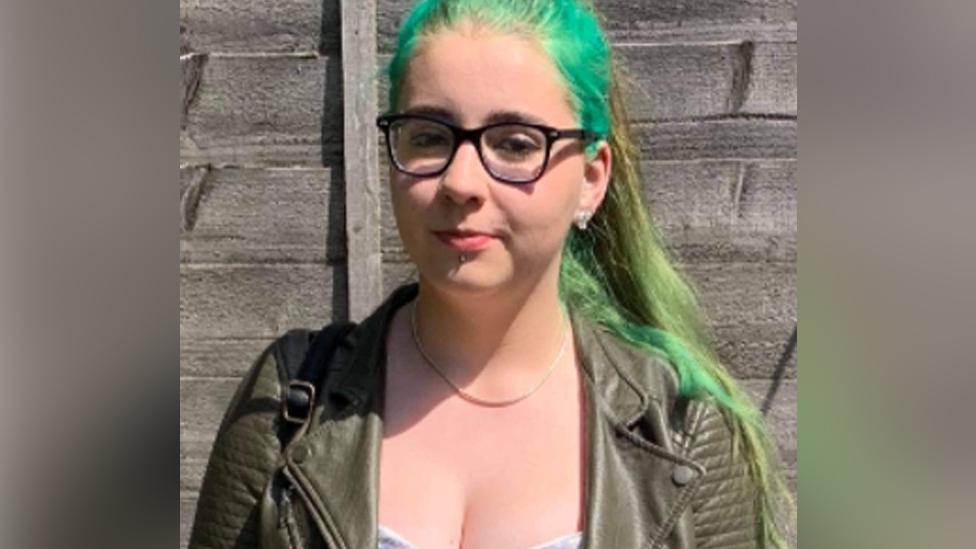
- Published1 July 2021

- Published30 June 2021

- Published23 June 2021

- Published21 June 2021

- Published16 June 2021

- Published15 June 2021

- Published14 June 2021
